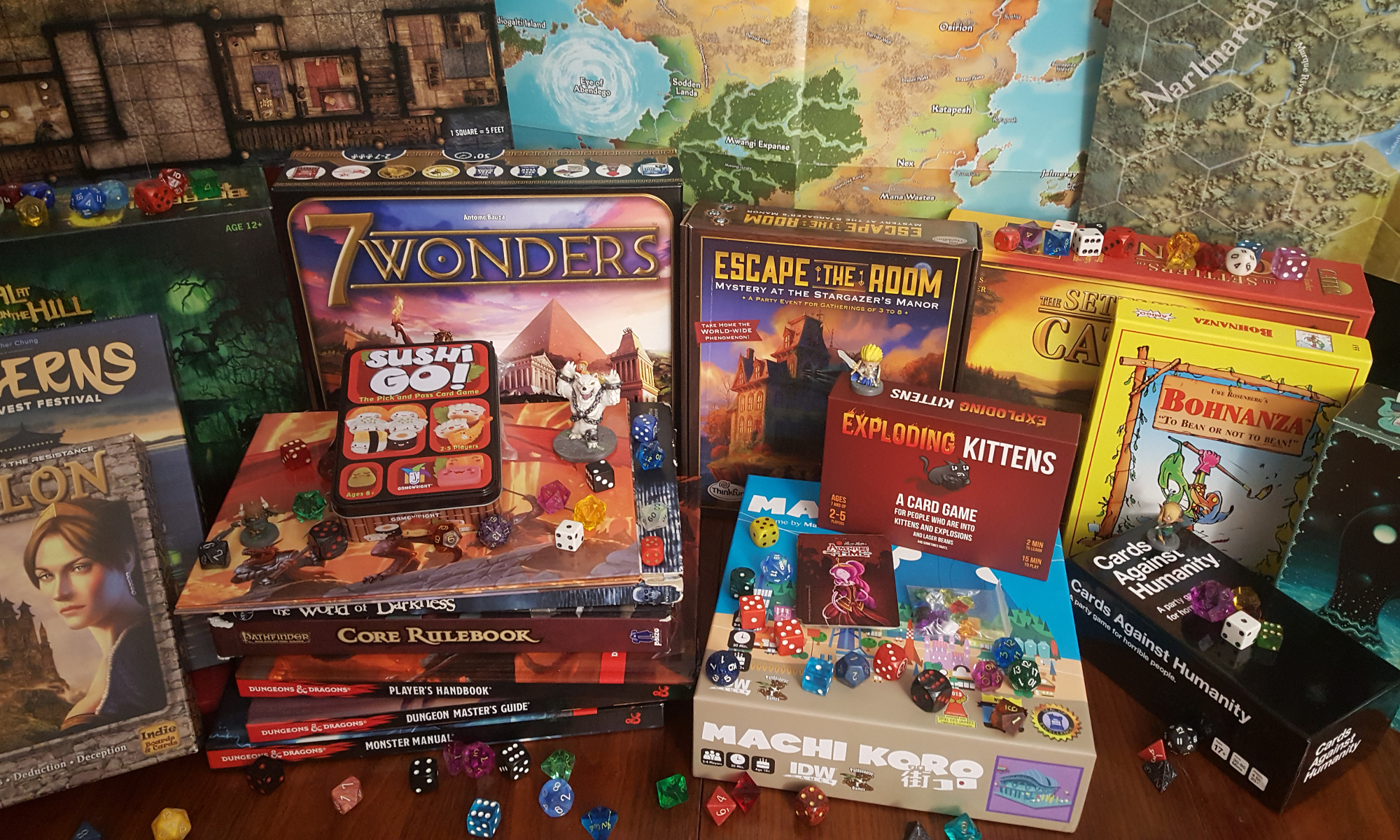Today on Save Vs. Rant, we are continuing our look at the Rise of the Runelords Adventure Path with Part 2: The Skinsaw Murders. Gruesome murders, a haunted house and a vicious cult. Join us as we delve deeper into this adventure path!
Note: There is some content in this module that may be disturbing for some listeners at around the 11:34 mark. We give a content warning before discussing this material, and skipping forward about a minute at that time will allow you to avoid all discussion of the particulars of this content.
Games are not sterile. They are not apolitical. They cannot exist in an environment that does not have the potential to make players uncomfortable, sad, angry, disgusted or afraid. This is true of all games, be they playground games, card games, board games, video games or roleplaying games. Roleplaying games especially have the potential to carry emotional weight, both intentionally and otherwise. This is not, by any means, a condemnation of gaming, but, rather, something that is absolutely vital for every player to know and accept.
Abstract games such as Go, Draughts (aka Checkers), Reversi (aka Othello) and Mancala tend to have the least political / emotional weight, but even these can have subtle or underlying themes. In Checkers, for example, a piece becomes a “king” when it reaches the far side of the board, granting it additional rights (bi-directional movement) and in most versions of the game, players are obligated to make a move that “takes” a piece if such a move exists. These are, of course, pretty subtle minor influences that aren’t likely to bother (or, indeed, even be noticed by) even the most sensitive players, but they are, nonetheless, one of the ways in which games are influenced by prevailing ideas.
Non-abstract games tend to carry opinions and weight with them. Consider 7 Wonders, for example. In 7 Wonders, warfare allows you to give your neighbors a penalty and you a bonus, scoring you a maximum of 12 points throughout the game and your opponent a -3 penalty. Meanwhile, Science gives 7 points for each complete set of 3, plus the square of your number of each individual type (1 for 1, 4 for 2, 9 for 3 and so on). The message, though subtle, is clear – warfare is relatively weak and is a poor investment beyond what it takes to overcome immediate threats, while technology becomes very valuable, but only if you make a concerted effort to invest in it. Meanwhile, civic advancements are weak early on, but open you up to many more valuable ones later in the game. None of these mechanics are really tied to the concepts they represent, though. The designers could just as easily have divided warfare into an Army, Navy and Defense category and treated them exactly as they chose to treat science for scoring. They could have made science the one that gives immediate point payoffs and paves the way for additional free advancement. They could have made trade dominance over your neighboring cultures a source of points and penalties. This would have implied an entirely different assumptions about the trajectory of civilization than the one the game quietly sells you, and as such we can surmise a great deal more than is immediately apparent about the designers by considering their choices.
Even simple card games like Pairs or explicitly silly games like Exploding Kittens suggest more than we may readily notice on casual observation. The very premise of “press your luck” style games of this sort suggests that we think in terms of risk and reward. While it’s, perhaps, a stretch to suggest that Pairs’ inclusion of fruit on the cards actually suggests a hierarchy of pomes, drupes and berries, Exploding Kittens’ use of not-exclusively game terms like “Attack” and “Favor” bring to mind the idea that the players are explicitly trying to harm one another or performing tasks with the expectation of reciprocity. These, again, are subtly telling us about the author’s worldview. Even if this is NOT the author’s thoughts on attacking or performing favors for others, it is recognition that those are definitions of those ideas to which the players will relate.
And, at the most anvil-on-the-head not-even-a-little-bit-subtle end of the spectrum, lies RPGs. Not only do the designers of the game write their personal biases, politics and opinions into the game through the settings, rules, NPCs and advice in the sourcebooks, but the players and referees do so all throughout the game as they play. Consider even the decision of what to call the adjudicator of the game – in Dungeons and Dragons, she’s the Dungeon Master (because she controls the dungeon, of course!), in GURPS he’s the Game Master (because he’s running the game, of course!), in World of Darkness they’re the Storyteller (because they’re telling a story, of course!), in Monster Horrorshow, it’s the werewizard (because… what?). In each case, the designer is instilling a sense of purpose in their referee role – subtly (or not-so-subtly) telling you what you’re doing, advising you of the meaning of this game you’re playing.
When we play games, especially tabletop games and especially especially roleplaying games, we are trying to have an enjoyable collaborative experience. Outside of the most grueling competition (also an inherently political concept), the goal of a game is to have fun – for everyone to have fun, win or lose. Someone running a game has succeeded if everyone is having fun including themselves. What different people enjoy is, however, wildly subjective (even when we try to categorize our experiences into the eight flavors of fun). Some players prefer onerous challenges while others want their struggles to be fairly light. Some want deep emotional investment while others want light carefree escapism. Some want to roleplay being unsettled, frightened, disturbed and mortified while others want to be pristine adventurers. All of these speak of our biases – known and unknown, conscious and unconscious, political and personal.
You can argue this point. You can lament that games are political and long for the good old days when they weren’t (spoiler – those days never existed). In doing so, however, you are doing yourself and your fellow players a disservice. Furthermore, if you’re a DM, in forcing your players to play through games and experiences they do not enjoy, you may be harming not only your friends, but your friendships with them.
That’s why – and we definitely plan to rant about this at length at a future date – it’s important to consider what kind of content might be upsetting, unsettling or disturbing for your players (or other players, if you are not filling the referee role). Be aware of what their hard limits are – that is, what content they absolutely cannot handle – and what their soft limits are – that is, what content they find difficult to enjoy or tolerate – and what situations might resonate with their traumas, fears and insecurities. Listen. Pay attention. Don’t intentionally antagonize or test them, but, when in doubt, ask them if they’re comfortable.
Some topics are inherently taboo. While they can be included in games (and doing so can be an enjoyable cathartic experience in the right setting) you should always be wary of such topics when playing with people you do not know well. Even with players you know well and with the express awareness of these topics, things can go south very quickly. Dark, disturbing and frightening fantasies can be overwhelming. In-game grief, fear and anger can manifest as real out-of-game emotions, and when things begin to cross the line, it’s vital that everyone involved be willing to pause the action – or stop entirely – if someone is becoming too uncomfortable. Feelings can be hurt, pride can be bruised and friendships can be destroyed if limits are not respected.
An alarming number of people have adopted to the mantra “toughen up” when dealing with unsettling topics. I’ve never been to a convention or large game where someone hasn’t explained that they don’t let games bother them because they “care about facts, not feelings.” This is an inherently absurd position, given that the core of our beliefs is always going to be what we view as our ideal world, and this is intrinsically based on the world we feel we would belong in or that would be ideal in some way. It has been my experience that every single person who has told me that they allow themselves to be ruled only by facts and never their feelings has been blind to the degree to which they allow their emotions to dominate and rule every aspect of their life beyond any semblance of reason or restraint. When we recognize, acknowledge and embrace our emotions as well as our reason, we are much better able to achieve the balance that allows us channel our negative emotions and real-world frustrations into our games and, beyond merely enjoying them, learn from them.
To be clear, I’m in no way suggesting that we purge gaming of things that might cause offense, disgust, fear, anger or grief. I’m a big fan of Kingdom Death: Monster, which features deeply disturbing khafkaesque nightmare horror. I have run several World of Darkness games that included graphic violence, explicit sexual content, drug use and real-world hate and bigotry. I enjoy bleak settings like Dark Sun with its cannibalistic halflings and cruelly indifferent elves. I enjoy Ravenloft with its theme of good fighting an eternal losing conflict with evil. I don’t want to tone games down at all, I only want players to feel comfortable to explore these topics without the fear of being overwhelmed in the process. Knowing that I’ll be receptive if they say that something is approaching (or over) their limit means that they’ll feel confident to explore and push their boundaries. And if they don’t feel like they’d be comfortable with these topics at all, by all means – let’s play something else.
I mean, it’s just a game, but it’s also more than just a game.

